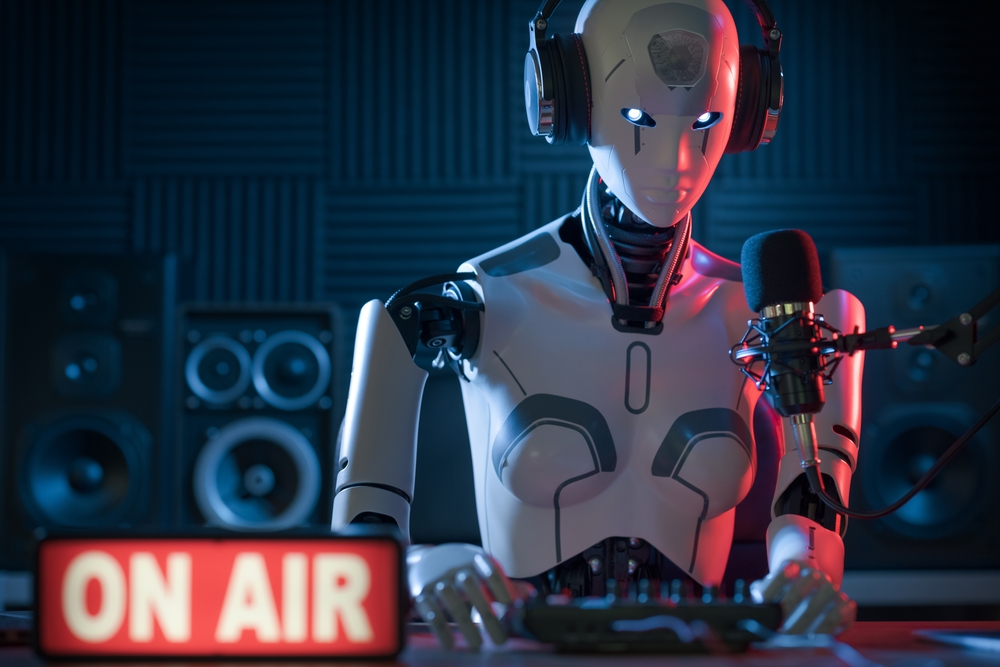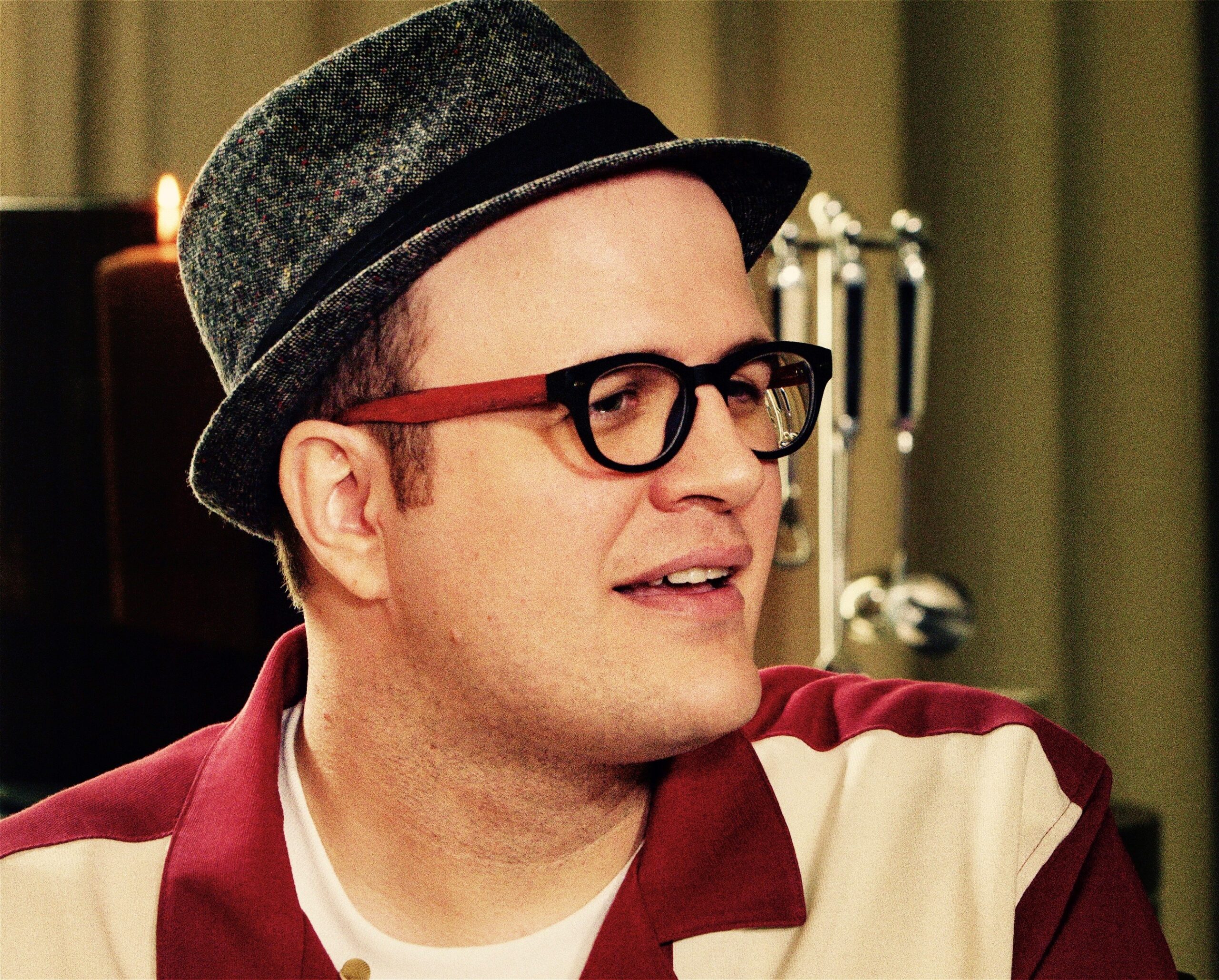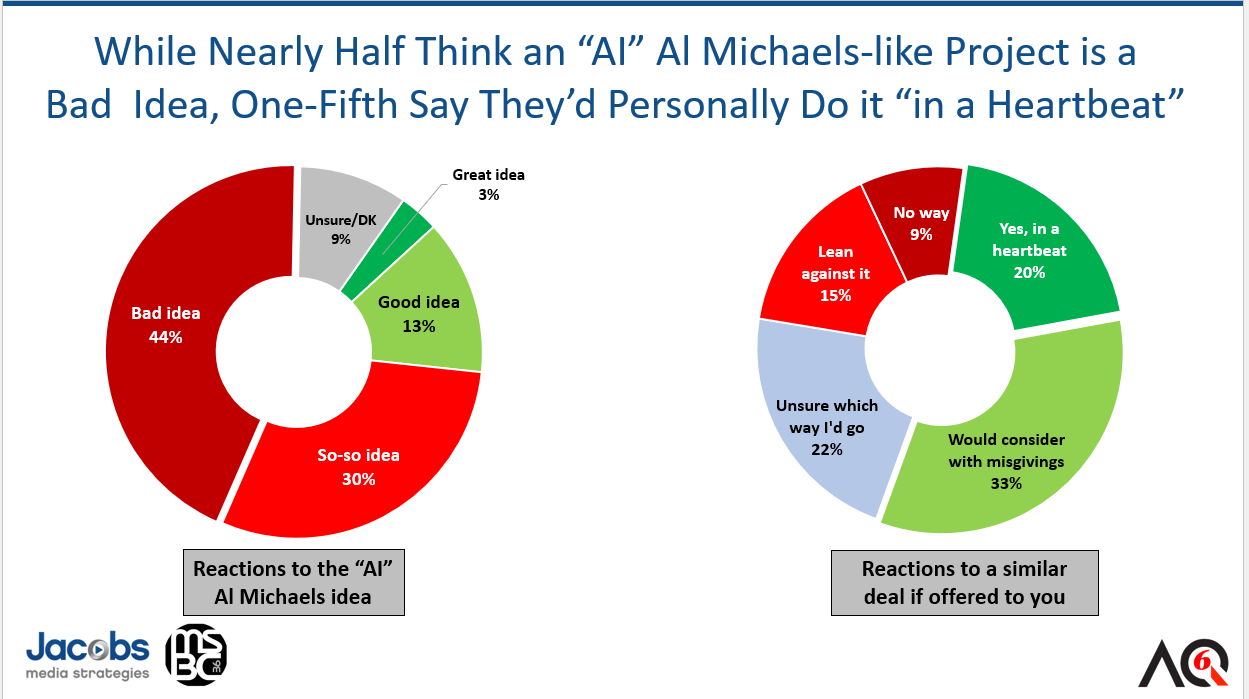
Here we are in the dog days of summer, and I think it’s pretty clear the worst is over. Chances are good you will not be replaced by a bot anytime soon. The coast is clear, the dust has settled, and hopefully, your industry nightmare is over.
That doesn’t mean your job won’t be eliminated or that you won’t be RIFed by the time all those Santas will be bell-ringing at your neighborhood strip mall. But that’s the point – you are more likely to lose your job during yet another spreadsheet analysis than you are to companies marketing robots to deal-seeking broadcasters.
That’s the message I’ll be taking to the hundreds of air personalities now gathering in San Diego for the 36th Morning Show Boot Camp. Once again, I’m honored to the be the opening session of this year’s festivities, summarizing AQ6, our annual study of commercial radio personalities in the U.S.
This year, more than 500 members of the talent community took the time to fill out our survey, giving us a look inside their stations and their psyches. And while there are some incredibly rich stories in the data once again this year, paranoia about Artificial Intelligence ravaging the radio industry like a tech pandemic is dialed down from last year. In fact, more personalities this year understand how AI can help build their brands. And many would be open to licensing their precious voices to a company AI initiative if conditions and compensation were satisfactory.
That’s important because in just 18 months or so since the AI frenzy began with the rollout of Open AI’s Chat GPT, radio has now settled in on this new technology. The fact there’s relative calm coming out of the air studio is notable because that’s the place where rumors often proliferate and spread. Instead, talent is seeing a titanium lining to this technology as radio moves toward its uncertain future.

Think about it – last year at Boot Camp our poster bot for AI on the air was Alpha’s Portland experiment with “AI Ashley” (pictured, and also on a panel at last year’s conference). Ashley Elzinga had a lot of botsplainin’ to do over her decision to sign the use of her voice over to program director Dylan Salisbury. (I wrote a two-parter about Phil Becker’s foray into AI. You can get started with those posts here.) .
So, what’s happened in the ensuing year? Given the mood at Boot Camp 35 and in the industry trades, you’d have thought the bots would have come marching in to radio stations in all-sized markets these past several months. Instead, I’ve racked my brain trying to think of examples of droids as DJs – and I could only come up with three, two of which are outside radio.
 There’s Spotify’s DJ X who I’ve blogged about during the past year. This robot character cyber-copies the voice of Spotify exec and consultant, Xavier “X” Jernigan (pictured), who reportedly cut a very nice deal with his employer. Online, the reviews for X tend to run positive, so perhaps Daniel Ek and his legions of executives are finally getting closer to a DJ solution, albeit without live DJs.
There’s Spotify’s DJ X who I’ve blogged about during the past year. This robot character cyber-copies the voice of Spotify exec and consultant, Xavier “X” Jernigan (pictured), who reportedly cut a very nice deal with his employer. Online, the reviews for X tend to run positive, so perhaps Daniel Ek and his legions of executives are finally getting closer to a DJ solution, albeit without live DJs.
Then there’s will.i.am, who is now using AI technology to create an on-air partner occupying the second chair on his radio show on SiriusXM. I wrote about “qd.pie” last year, another interesting lab experiment into the world of AI jockdom.
And in the real world of radio, Russ Mottla (pictured) – who’s never missed the opportunity to shake things up with a viral promotion – created and installed “Tori” into the previously unoccupied daypart known as “nights” in Cedar Rapids for NRG-owned Rock 108. Last time we checked in with the iconoclastic Russ, Tori was building buzz…and even doing remotes.
shake things up with a viral promotion – created and installed “Tori” into the previously unoccupied daypart known as “nights” in Cedar Rapids for NRG-owned Rock 108. Last time we checked in with the iconoclastic Russ, Tori was building buzz…and even doing remotes.
Now, I’m sure I’ve missed other bursts of AI creativity over the past year. And if that’s the case, I’m sure you’ll let me know. But predictions about the death of human DJs since the coming of this technology have been greatly exaggerated – and widely hyped often by those trying to sell you their “DJ in a box.”

In fact, a number of broadcast radio owners have publicly vowed to not let cyberjocks replace the real thing. One of them – Hubbard’s thoughtful CEO, Ginny Hubbard (pictured) will be joining me on stage at Boot Camp to break down and discuss our AQ6 findings.

Last I checked, Hubbard continues its longstanding priority of not just emphasizing talent, but developing ways to creatively use it. Last month, I blogged about the company’s collaboration with Skyview Networks to launch and market a “Professor of Rock” radio show featuring Adam Reader (pictured).
Adam is an acclaimed YouTuber with more than 1.2 million subscribers. And while he has the equivalent of a photographic memory about music, Adam is most definitely a humanoid – an old school jock who’s a storyteller, a collector of vinyl, a passionate music fan, and an all-round fascinating person. No “deep fakes” there.
To give Boot Campers an idea of what might be done in a mashup of AI technology and mega-personality, look no further than what NBCUniversal rolled out for the Paris Olympics currently capturing the attention and eyeballs of millions of us. Using the voice of their famous sports maven, Al Michaels, the tech wizards in the company created “AI Michaels” who produces what is now into the millions of personalized sports summaries for fans of the games and specific sports. I highlighted this effort last month here in JacoBLOG:
For the AQ6 research, we provided this example to our radio personality respondents, and asked for their reactions to this burgeoning technology.
On the left below, you can see reactions tend to run quite negative about this bold use of NBCUniversal utilizing Michaels’ voice for personalized recaps. In fact, 44% call it a “bad idea.”
But if a similar deal was offered to them by the station or a client/sponsor, it’s not so bad (on the right). In fact, one-fifth say they’d jump at the chance to earn some “non-traditional revenue” in return for the use of their voice in an AI application, while one-third say they’d consider the deal, but with misgivings.

While we’ve only asked about AI during these past two surveys, you can see patterns forming. Like so many other technological breakthroughs we’ve witnessed in our lifetimes, all those skeptical and wary reactions we’re deluged with early on often get sanded down once we actually have those same innovations in our hands, homes, cars, and workplaces.
No one can say with any certainty that AI will become as popular in our lives as internet TVs, smartphones, and food delivered to our homes whenever we get hungry. There are many chapters yet to be written about AI, including the one about our upcoming election where we don’t know exactly how this will all play out. (Of course, that chapter will probably be written by AI!)
A DJ, announcer, or personality licensing their voices is very much in step with the NIL (name, image, likeness) revolution currently blowing up the entire sports compensation model. Why should radio air talent cash in on the use of their voices, materially no different than Bruce Springsteen licensing his music catalog to Sony for a reported $550 million. And thinking about it from the POV of radio personalities, it’s much easier money (and a lot less work) than hosting a car dealer remote or working an extra weekend shift.
I love Boot Camp because it’s a window on the world of the air studio, occupied by the most interesting denizens of radio stations.
And in the warm glow of San Diego, it will be interesting to take the temperature at this always-entertaining and substantive event, populated by radio’s ambassadors. And the good news is that as far as AI taking their jobs, it looks like they have a lot more important things to worry about.
Hope to see you at Boot Camp.
If you can’t make it to San Diego, we’ll be hosting a free webinar highlighting AQ6’s key findings later this month. Stay tuned for that announcement.
To subscribe to Chris Brunt’s AI newsletter, Jacobs AI Edge, go here. It’s free and loaded with good ideas for radio broadcasters.
- The Rock Hall’s Most Egregious Snub Yet? - May 16, 2025
- Attention Tech And Entertainment Writers: Don’t Mess With Radio! - May 15, 2025
- 3 Socio-Economic Shifts Every Radio Programmer And Seller Should Be Aware Of - May 14, 2025




Fascinating for Our Times. Our A I is Authentic Input. Thank you, Fred. Digital Anytime 1220watx.com CLASSICS!
One day they will see this as a seat on the train they rode to their professional death. And everyone will ask when was the last point we could have stopped it.
You’re ono the record now, Bob, and I hope you’re wrong.
“But predictions about the death of human DJs since the coming of this technology have been greatly exaggerated – and widely hyped often by those trying to sell you their “DJ in a box””
Gee, a lot of people trying to hype the death of a traditional and proven business model in broadcasting, to instead sell you an unproven, unwanted, and often (not always, but often) money-wasting business model in A.I. Where have I heard that before?? Oh right, substitute “digital” for “A.I.” and it’s all we’ve heard for the last 25 years!!! 🙁
Never forget that anytime someone is screaming that a given business model is “dead” and some new business model is the future? Almost always that someone has a financial stake in you buying whatever it is they’re selling. Even if…ESPECIALLY if…it doesn’t seem like they’re selling anything. It’s not that the new way of doing things is useless. It’s that you must always consider the source.
Aaron, you make a good point. Buyers always need to bewawrd especially when the product is being hyped as “the next big thing.” But in the case of digital, smart sales reps took the stance that having a digittal component and delivery system in addition to your traditional broadcast facility is what stations and companies should aspire to.
Fred,
You know I think that you have been one of radio’s pillars for years and you will continue to be for what’s left of the industry, but you couldn’t be more wrong about this article. You saved yourself Fred with “I think”, because you should think again. Not only because you are a forward thinker, but because we are only at the infancy of AI my friend. The ‘worst is over’ shouldn’t be a clarion call for what amounts to a sprint. This is a marathon dude!
The notion that “the worst is over” and that people will not be replaced by bots anytime soon is an overly optimistic view that fails to consider the ongoing and rapid developments in technology, the labor market, and the evolving role of artificial intelligence (AI) in our lives. While it is comforting to think that the current wave of automation has crested, a closer examination reveals that we are likely just at the beginning of significant changes that will reshape industries and job markets.
The idea that humans or ‘Jocks’ are safe from being replaced by bots overlooks the relentless pace of advancements in AI and automation. In recent years, we have seen significant improvements in machine learning algorithms, natural language processing, and robotics. These technologies are not only becoming more sophisticated but also more accessible to businesses of all sizes. AI evolves every minute and it will inevitably encroach on more complex tasks that were once thought to be the exclusive domain of humans.
For example, AI-driven tools are already being used in fields like journalism, customer service, and even legal research. These tools can analyze vast amounts of data, produce written content, and provide customer support at a scale and speed that humans simply cannot match. While these AI systems are not yet perfect, they are improving rapidly, and it is only a matter of time before they can perform these tasks with a high degree of accuracy.
Another factor to consider is the economic pressure on terrestrial radio to increase efficiency and reduce costs. Audacy has been delisted from NASDAQ and iHeart is .30 away from the same fate. And you think the station control room is safe harbor? The real awakening for radio comes in 25 and 26. In many industries like radio, labor is one of the most significant expenses. As AI and automation technologies become more cost-effective, companies will have a strong incentive(and a dire need)to replace human workers with machines that can operate around the clock without the need for breaks, benefits, or wages.
This might be a great speech at a radio convention to boost morale for peeps who have been in the industry for 30+ years, but it doesn’t address the kids who want to enter a business profession that introduces the next song. That profession is gone. Fact is, AI can script a more compelling break between songs than most humans. I grew up with radio in Detroit like you, so we share the same love for this business but it ain’t going back to where it was…………………any time soon.
Jimmy, thanks for reading the blog, for your heartfelt comments, and the spirit in which they were written – all appreciated.
I think caught me being a bit (too?) optimistic and hopeful about AI. To that end, I’m hoping that talent take the opportunity to learn this technology and make it work for them. The Al Micahels/Olympics example could be a amodel where influential talent (and I realize that leave out a LOT of people) can leverage AI and make it work for them.
But none of that should ignore how it can be used to run a more efficient (read: with fewer or no people). Thanks for the much-needed bucket of ice water.